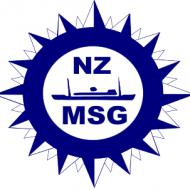Maersk withdrawal shows supply chain volatility, unions say
BY ROBERT BARRY — March 20, 2023
The withdrawal of a dedicated Maersk shipping service on the New Zealand coast is a step backwards for the country’s supply chain security, say unions representing crews.
Maersk announced on March 17 that it was withdrawing its Coastal Connect service after less than a year in operation, with the loss of all jobs of New Zealand crews.
Three unions all have members aboard the affected Maersk vessels – the Maritime Union of New Zealand representing seafarers, the New Zealand Merchant Service Guild representing ship’s masters and officers, and the Aviation and Marine Engineers Association representing marine engineers.
The Maersk Nandi and the Maersk Nansha are the two container ships that have been providing a dedicated New Zealand coastal service to ports in Auckland, Tauranga, Nelson, Lyttelton and Timaru.
The coastal service was seen as a breakthrough in providing reliable services to New Zealand ports following massive disruption to shipping schedules following the COVID pandemic.
Maritime Union of New Zealand national secretary Craig Harrison says the sudden withdrawal of the Coastal Connect service shows how volatile and insecure New Zealand’s supply chain remains.
He says the cancelled Maersk services will be replaced by new international services that drop some New Zealand ports off their calls and use Australian ports as hubs.
“This continual market volatility is bad for New Zealand and will have a flow on effect to importers and exporters, and thus the whole economy,” Harrison says.
“New Zealand is making good progress with coastal shipping, and although the Maersk decision was a setback, there is still an overall positive trajectory for coastal shipping.
“We saw a number of new ships and services coming onto the New Zealand coast in the last year, largely due to Government engaging with industry and having a plan which we haven’t had for decades,” he says.
He says there is currently high demand for New Zealand seafarers, and he is hopeful redundant crews would be re-employed in the industry. He says the maritime unions will be asking Maersk to provide training positions for New Zealand crew aboard the new services.
“This is a company that has made very large profits from New Zealand over decades, and they need to show stronger commitment and social responsibility,” Harrison says.
He says the clear message is New Zealand is at the bottom of the priority list for global shippers.
“If New Zealand does not get its act together with a national port strategy, we are going to see more hubs in Australia, and New Zealand ports further down the pecking order,” he says.
Harrison says one obvious option is to get state owned enterprise KiwiRail, who operate inter island Cook Strait ferries, to diversify by leasing ships to meet the demand for coastal shipping.
